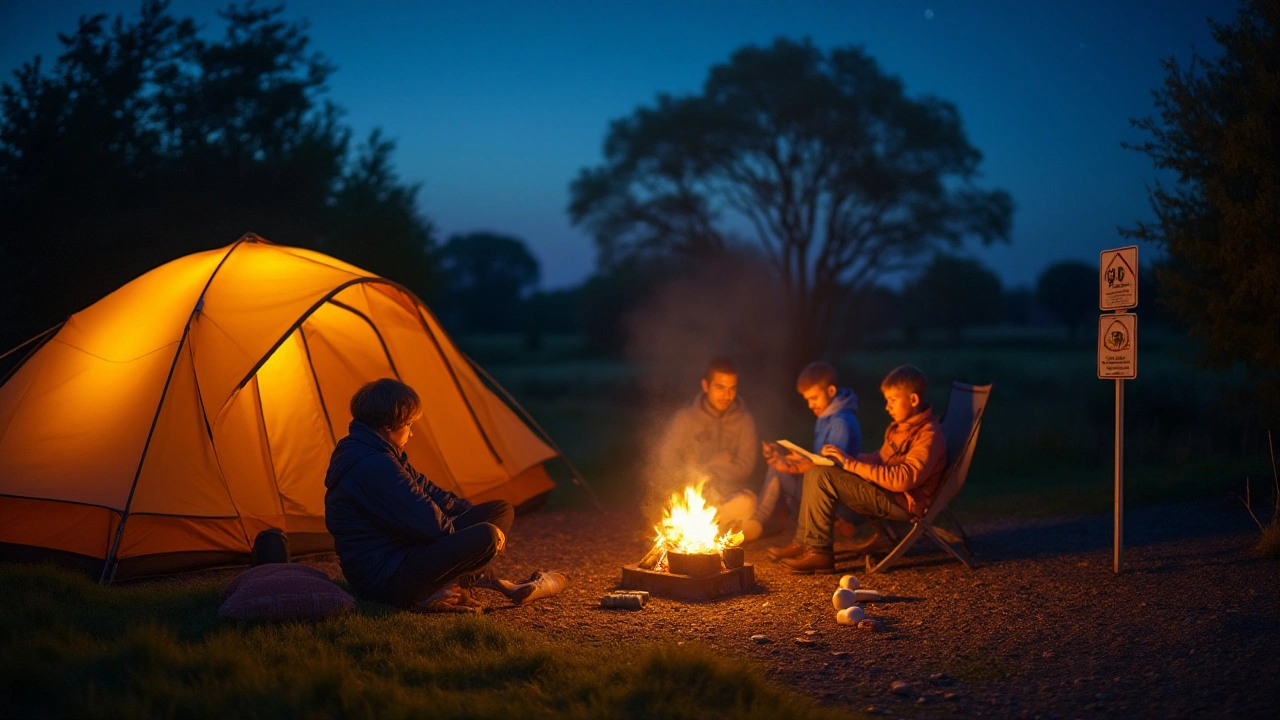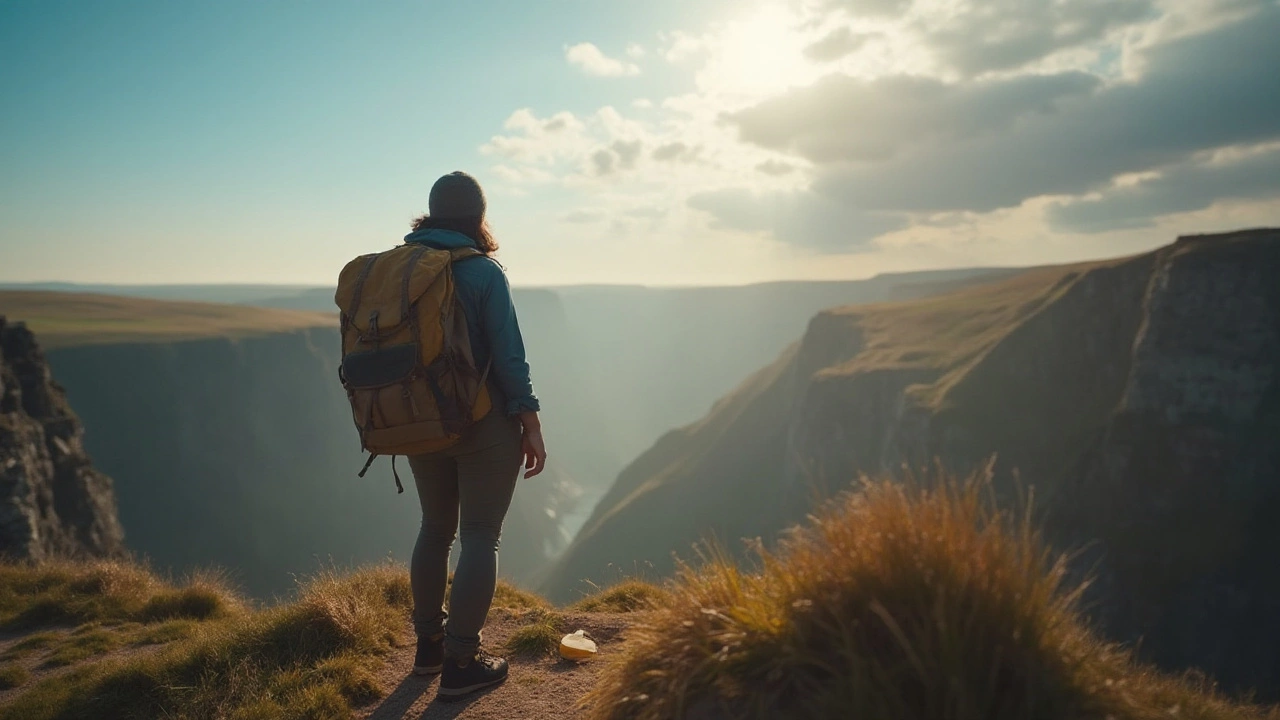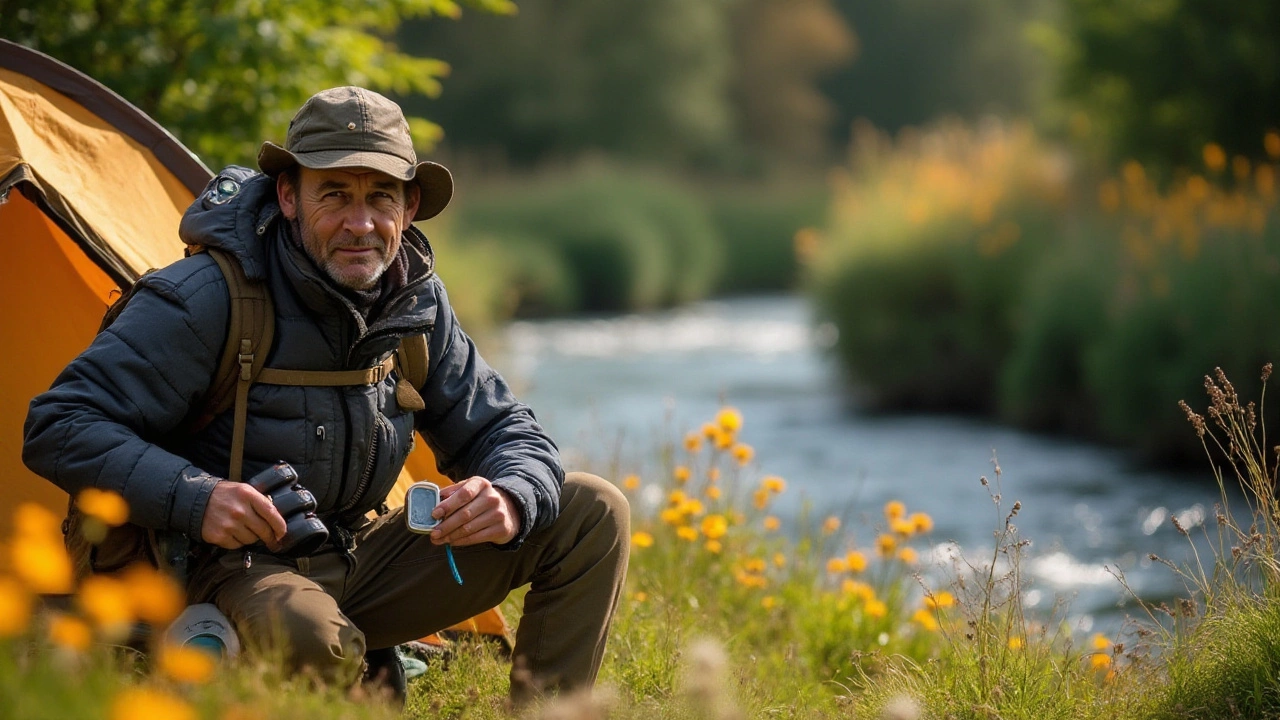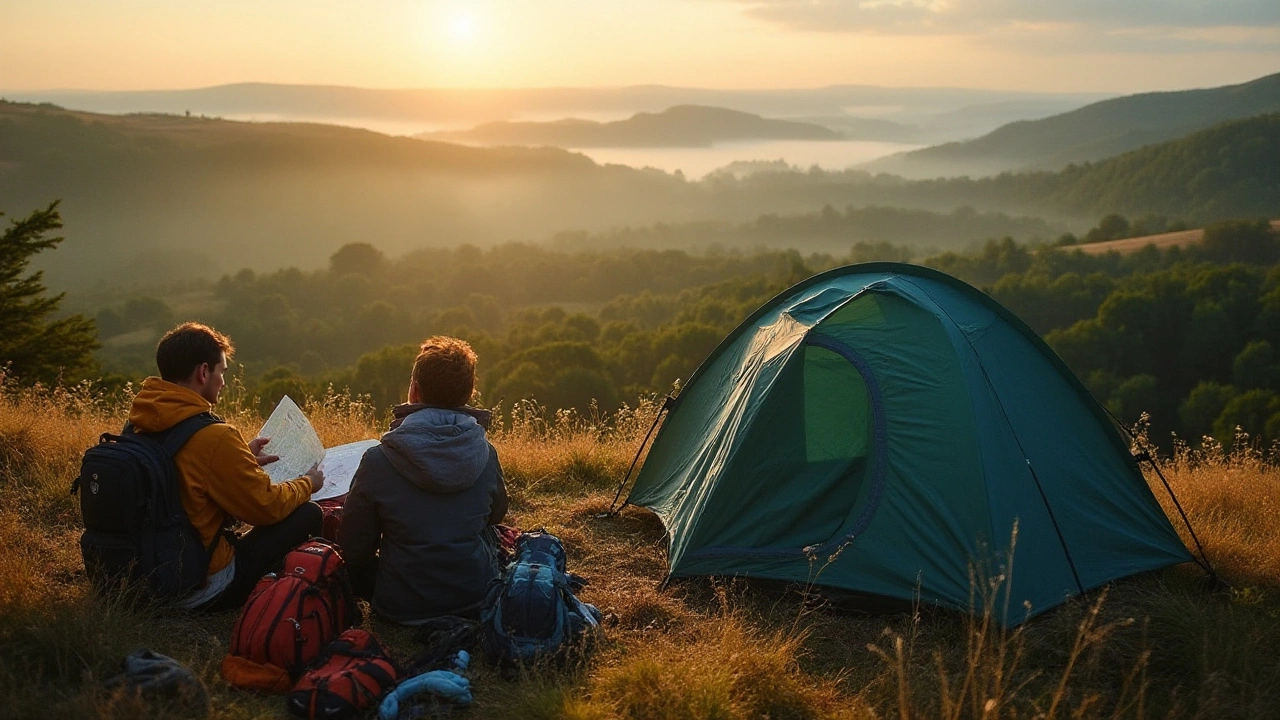For those adventurous spirits longing to embrace the freedom of sleeping under the stars, wild camping offers a unique allure. But, much like any good tale, knowing the lay of the land—especially when it comes to England—is essential.
While the call of the wild beckons, England has its own set of rules regarding wild camping. With most of the land being privately owned, pitching your tent wherever you please isn't as simple as it sounds. Legal complexities hover like a cloud over the dream of a night spent outside the confines of official campsites.
However, understanding what you're getting into can turn uncertainty into assurance. From potential fines to courteous alternatives, being an informed camper can make all the difference to your countryside experience. So grab your gear, and let's dig into what it truly means to wild camp in England.
- Legal Aspects of Wild Camping
- Potential Consequences and Fines
- Respecting Nature and Local Communities
- Alternative Options for Camping Enthusiasts
Legal Aspects of Wild Camping
Embarking on a wild camping adventure in England can be as thrilling as it is serene. However, understanding the legal groundwork is imperative for a hassle-free experience. At its core, wild camping involves setting up camp outside designated camping areas, which, in England, legally requires the landowner's permission. The law here isn't just for formality; it underpins the respect for private property and the preservation of natural beauty. Without the necessary consent, campers might find themselves politely asked to leave or, in some cases, facing fines. The Trespass Act 1968 and other legal frameworks provide guidelines that apply both to campers and landowners, maintaining a balance between enjoyment and conservation.
When we delve into the history, wild camping laws primarily stem from the cultural context of land ownership in England. Unlike Scotland, which allows wild camping under the Scottish Outdoor Access Code, England has stricter policies due to its landscape framed by private lands. The historical pattern of land ownership reflects a time where lands were not merely physical spaces but symbols of wealth and power, a sentiment that subtly lingers even in modern times. This situation has undeniably influenced contemporary attitudes towards land use and public access.
A fascinating exception is Dartmoor National Park, where the law is more lenient, allowing wild camping in certain areas without prior permission. Even here, rules regarding campfire use and leave-no-trace principles are strictly imposed to preserve the environment's integrity. Respect for these guidelines assures the continuation of this privilege. In an article by The Guardian, a respected wildlife expert expressed,
"Dartmoor's unique policy is a testament to the balance between freedom and responsibility that camping enthusiasts must navigate."This highlights the delicate equilibrium between enjoying nature and ensuring it remains unspoiled for future generations.
For those eager to partake in wild camping but wary of legal restrictions, England offers 'wild camping-friendly' spots that make for appealing alternatives. These locations often partner with local landowners to create spaces where nature enthusiasts can pitch their tents legally and experience the tranquility of the outdoors. Engaging with these initiatives supports local economies and enhances the landowners' ability to sustain such ventures, which can lead to more widespread acceptance of wild camping. It's about building a community around nature appreciation, where legal adherence meets mutual respect.
To navigate these legal aspects effectively, prospective wild campers should consider the following essential practices: research potential landowners and seek written permission, understand and adhere to any restrictions meticulously, and cultivate relationships with those who steward the land. This proactive approach not only safeguards campers from legal troubles but also fosters an environment of respect and collaboration between outdoor enthusiasts and land custodians.
Anyone venturing into the realm of wild camping needs to equip themselves with the right knowledge and attitudes. As you ponder over your next adventure, remember that the heart of wild camping lies in its minimalistic interaction with nature. England's legal parameters encourage this ethos—when navigated appropriately, these boundaries enhance the wild camping experience, offering immersion in the enchanting landscapes that only such an unconfined setting can provide.

Potential Consequences and Fines
Embarking on a wild camping adventure in England without understanding the potential consequences is akin to setting off into the woods without a compass. The rules around wild camping here are clear-cut, primarily because most of the land is owned privately. While the idea of pitching a tent on lush, open fields might seem romantic, it’s essential to remember that doing so without permission could land you in legal trouble.
In England, wild camping without permission is technically illegal, and it can result in more than just a missed sunrise. Landowners have the right to ask you to pack up and leave their property, and they can involve the police if their request goes ignored. While this might seem daunting, the real deterrent for many is the potential fine. Though less common, if authorities choose to press charges, it can lead to hefty fines which vary depending on the severity of the infraction and the local laws of specific counties or regions.
Moreover, insistence on staying put despite requests to vacate can exacerbate matters, sometimes resulting in charges of trespassing. Though rare, such offenses can tarnish one’s record, making a simple camping trip more complicated than anticipated. A respectful approach can mitigate much of this risk. Leave no trace behind, maintain a low profile, and respect both the environment and property around you.
An illustrative example comes from the famed Lake District, where wild camping is frowned upon. The area enforces tighter regulations to protect its delicate environment. However, South Lakes police reported a reduction in such incursions once campers became aware of the possible repercussions.
Carlisle police once mentioned, "Education and awareness are our best tools in ensuring visitors enjoy their stay responsibly."
If you're caught wild camping, be prepared for a hasty move to the nearest campsite, or negotiation for permission if the landowner seems approachable. Knights Law suggests that the best setup, legally and morally, is on land where you've already obtained permission, turning an otherwise risky endeavor into a mutually beneficial experience with local landowners. Understanding these nuances will help you make the most of your camping escapades without unintended legal backlashes.

Respecting Nature and Local Communities
It's easy to get caught up in the excitement of wild camping under the vast English skies. But in doing so, one must tread carefully, balancing adventure with respect for the natural environment and the communities that call these areas home. The countryside, with its ancient woodlands and rolling hills, is not just a backdrop but a living, breathing ecosystem that plays host to numerous species, some of which rely on these undisturbed landscapes for survival. Awareness and mindfulness during your camping escapade are vital. Taking steps such as minimizing your footprint by choosing sites wisely, using existing paths, and avoiding trampling on delicate vegetation can make a huge difference. It’s vital to remember that our presence, though temporary, can have lasting impacts.
Similarly, local communities often have a deep-rooted connection with the land, having nurtured traditions and livelihoods here for generations. For this reason, it's important to respect private property, always seek permission where possible, and adhere to any local guidelines or advice regarding camping. Communicating with locals can enrich your experience, offering you hidden gems and stories that guidebooks might overlook. Consider the words of environmental advocate Chris Packham, who once said,
"Every landscape has its local custodians who know its hidden tales and values far better than the casual traveler."Engaging with the community can also mean supporting local businesses, whether it's a small village pub or a farm shop, offering a real taste of the area while contributing economically.
Camping practices like carrying out all rubbish, using designated fire pits if fires are permitted, and opting for renewable resources, ensure you leave the place as beautiful as you found it. There's a simple mantra that holds steady: leave no trace. This commitment is more than just a catchphrase; it's a pledge to future generations and a nod of respect to the wildlife that doesn’t get to roam elsewhere. Consider utilizing portable stoves instead of a ground fire, ensuring they're used safely and in designated areas to avoid any fire hazards. Moreover, practicing nighttime courtesy by minimizing noise and light pollution not only benefits nocturnal creatures but enriches your experience too as the stars become your silent companions.
The harmony between campers, nature, and residents can be likened to a symbiotic relationship. The success of your wild camping trip in England hinges on this relationship. Understanding and embracing the cultural and ecological sensitivities of the areas you visit. Let's not forget that these lands are timeless storytellers of history and nature, and we as visitors should take part in this tale in a manner that future explorers can also enjoy. Remember, enjoying the great outdoors responsibly ensures its preservation for countless seasons to come.

Alternative Options for Camping Enthusiasts
For those yearning to camp in the great English outdoors but wary of stepping on the wrong toes, there are indeed numerous paths to explore. Imagine lying back on the grass, gazing up at a canopy of stars without the nagging worry of being awakened by an irate landowner. Achieving this euphoria while adhering to the rules is entirely possible.
One viable option is to indulge in the beauty of designated campsites which often come with a slew of amenities like clean water, toilets, and sometimes even electrical hook-ups. These facilities ensure a comfortable experience without taking away from the thrill of being amidst nature. More than just a stopover, many of these sites are situated near picturesque landmarks, turning your camping trip into a delightful tour of England’s hidden gems.
Yet another adventurous route is to harness the charm of England's National Parks which provide a middle ground between complete wilderness and regimented campsites. Dartmoor, for instance, is a haven where wild camping is somewhat tolerated, allowing you brief stays if you follow their guidelines closely. Keeping to a 'leave no trace' ethic here ensures that your presence is but a whisper upon the land, an integral part of this arrangement that many campers uphold dearly.
More recently, some progressive landowners have started offering 'pop-up campsites' which turn this private land into temporary camping venues during peak seasons. This is not only a nod towards sustaining the environment but also enables campers to traverse lands previously forbidden. These pop-ups are an excellent way to support local communities while exploring beyond traditional boundaries. As one seasoned camper notes, "It’s like having the world unfold a new page each season, offering fresh landscapes to immerse yourself in."
John C. Wright, an avid outdoor enthusiast, has said, "Finding new ways to enjoy the wild responsibly is what binds us to nature's intricate dance, always remembering to tread lightly."
Just as important as knowing where to camp is understanding the deeper nuances of why. Traditional camping links us back to simpler times, and these modern alternatives are ways to keep that connection alive without contravention of the law. As you prepare for your next outdoor adventure, consider these alternative options to wild camping in England, ensuring that your experience is not only memorable but also responsible in every possible way.
